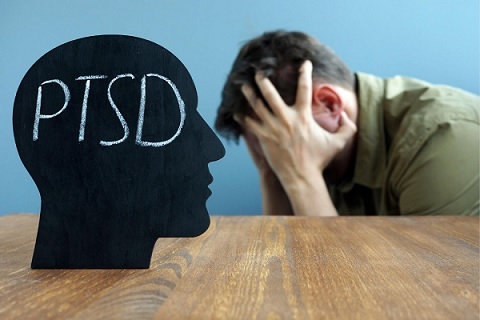Overcoming the Shadows of PTSD: Pathways to Emotional Resilience
Post-Traumatic Stress Disorder (PTSD) is a condition that lingers in the shadows of traumatic experiences, affecting millions globally. But there is a path forward. This blog post aims to illuminate the pathways to overcoming PTSD and building emotional resilience, offering hope and practical strategies for those affected.
Understanding PTSD
PTSD is more than just a response to a traumatic event; it’s a complex disorder that manifests in various symptoms like flashbacks, severe anxiety, and uncontrollable thoughts about the event. Understanding PTSD is the first step in overcoming it. It can be triggered by a myriad of experiences – from combat and abuse to accidents and natural disasters. Recognizing these symptoms and understanding their roots is essential for effective intervention and healing. The National Institute of Mental Health provides comprehensive information on PTSD, its symptoms, and treatment options.
The journey to understanding PTSD is deeply personal and can be challenging. It often involves confronting painful memories and emotions. However, this understanding is crucial as it lays the foundation for effective treatment and recovery. It’s about gaining insight into how the trauma has impacted one’s life and identifying the triggers that might lead to PTSD episodes.
Traditional Therapeutic Approaches for PTSD
Conventional therapies play a crucial role in treating PTSD. Cognitive Behavioral Therapy (CBT) and Exposure Therapy have shown significant success in managing PTSD symptoms. These therapies involve working with a trained therapist to process traumatic events and develop coping mechanisms. They are not quick fixes but rather, they offer a guided path towards healing and emotional resilience. Psychotherapy, in particular, can be a powerful tool in addressing the underlying causes of PTSD and helping individuals rebuild their lives.
These therapeutic approaches require commitment and patience, as they involve gradually confronting and coming to terms with the traumatic experience. They often integrate techniques like relaxation, mindfulness, and cognitive restructuring to help manage symptoms and build resilience.
Coping Mechanisms and Self-Help Strategies
Self-help strategies and coping mechanisms are vital in managing PTSD. Simple yet effective techniques like deep breathing, mindfulness, and journaling can provide immediate relief during moments of intense anxiety or flashbacks. Developing a self-care routine, which may include regular exercise, sufficient sleep, and a healthy diet, also plays a pivotal role in overall well-being. These strategies empower individuals, giving them control over their recovery journey.
Incorporating these coping strategies into daily life can make a significant difference in how individuals with PTSD experience and react to their symptoms. They are tools that can be used anytime, anywhere, providing a sense of control and mastery over the disorder.
Medical Marijuana for PTSD
The use of medical marijuana in the management of PTSD symptoms is gaining traction. It has been found to alleviate symptoms such as anxiety, insomnia, and recurrent nightmares. In Alabama, medical marijuana is legal for medical use, including for PTSD. To access it, individuals need an Alabama medical marijuana card, obtained through a certified physician’s recommendation. While not a standalone treatment for PTSD, medical marijuana can be a valuable component in a comprehensive treatment plan.
The consideration of medical marijuana as a treatment option should be done in consultation with healthcare professionals. It’s crucial to understand the potential benefits and risks, and how it might interact with other forms of treatment. In Alabama, navigating the process of obtaining a medical marijuana card involves understanding the specific legalities and regulations set forth by the state.
Support Systems and Community Resources
A robust support system is integral to the recovery process for individuals with PTSD. Support groups offer a space to share experiences and gain strength from others who understand the unique challenges of living with PTSD. Organizations like PTSD United provide a platform for connecting with support groups and resources. The support of family and friends is also invaluable, offering a network of understanding and encouragement.
Support systems extend beyond formal groups; they encompass anyone who can provide emotional support, understanding, and practical assistance. This could include family members, friends, colleagues, or mental health professionals. The presence of a supportive community can significantly impact the recovery process, providing a sense of belonging and reducing feelings of isolation.
Lifestyle Changes and Holistic Therapies
Lifestyle changes and holistic therapies can significantly enhance the quality of life for individuals with PTSD. Activities like yoga and meditation promote relaxation and mental clarity, while regular physical activity can improve mood and reduce symptoms of anxiety and depression. Integrating these holistic approaches into daily life can foster a sense of well-being and resilience, essential for long-term recovery.
Holistic therapies also include practices like acupuncture, art therapy, and equine therapy. These therapies offer alternative ways to process trauma and manage PTSD symptoms, appealing to individuals who might be looking for non-traditional methods of treatment. They often focus on the mind-body connection, emphasizing the importance of treating both the psychological and physical aspects of PTSD.
Navigating Healthcare and Advocacy
Navigating the healthcare system and advocating for comprehensive PTSD care can be overwhelming. It’s important to communicate openly with healthcare providers and seek out the best possible treatment options. Advocacy also involves educating oneself about PTSD and staying informed about the latest research and resources. Organizations like the American Psychological Association offer valuable resources for those seeking to advocate for themselves or their loved ones.
Advocating for oneself or a loved one with PTSD also means being aware of the rights and services available. This could involve understanding healthcare policies, accessing veteran services if applicable, or seeking financial assistance for treatment.
Conclusion
Overcoming PTSD is a journey of resilience and strength. While the path may be challenging, it’s paved with hope and support. Exploring various strategies, from traditional therapies to self-help techniques and holistic approaches, can lead to a fulfilling life beyond the shadows of trauma.
Additional Resources
For more information on PTSD and strategies for recovery, visit resources such as The National Center for PTSD and The Anxiety and Depression Association of America. These resources provide invaluable support and information for those navigating the complexities of PTSD. Remember, while the journey may be difficult, you are not alone, and with the right tools and support, resilience and healing are within reach.



